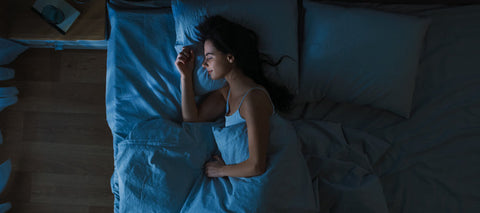Quality sleep that nourishes and refreshes us is something that is so crucial, yet evades so many of us. We all know that feeling of tiredness after a late night, but the effects of a chronic lack of sleep can have far reaching consequences.
Here, we take a look at why sleep is so important and how we can help ensure we’re getting enough.
Why sleep is crucial for our health and wellbeing
When we sleep, our bodies are not just relaxing and recuperating, they’re going through a system of repair, especially within the brain. During sleep, the brain sorts through all the memories that we’ve accumulated during the day, and files them according to how important they are.
So without enough sleep, our body and brain are unable to go through this crucial repair phase. But not only that, those of us who don’t sleep due to stress, anxiety, insomnia, money worries, a new baby or any other reason, are more likely to suffer chronic diseases such as obesity, heart disease and type 2 diabetes.
Not getting our seven to eight hours of sleep a night can also mean that our mental health suffers. As does our ability to learn, focus, concentrate, make decisions and reason with others (we become tetchy and arguments ensue, that we really didn’t mean to happen, meaning that our relationships with lovers, loved ones, friends and colleagues also suffer).
Another consequence of being tired all the time is an increased risk of suffering an accident as we sleepily make our way through life.
A chronic lack of sleep also makes us change our behaviour. Feeling tired often means that we make less healthy dietary choices. Usually, this means comfort food, or carb heavy foods that are generally processed and high in saturated fat, salt and sugar.
It also means that we’re more likely to reach for the caffeine to keep us going, which if drank to excess can have the unfortunate side-effect of keeping us awake at night too.
Feeling tired can also make us lean towards our other coping mechanisms, such as smoking, drinking to excess or taking recreational drugs.
Tips for getting enough sleep
Getting plenty of decent quality sleep is rooted in the theory of ‘good sleep hygiene’. This means trying to adhere to the following:
- Having a bedroom that is cool, dark, quiet and free from clutter
- Using ear plugs if you live on a noisy road or in a busy area
- Adopting a regular bedtime routine including winding down with a relaxing pastime, book or television programme in the hour before bedtime and having a calming, warm, caffeine free drink such as camomile tea
- Avoiding all caffeinated drinks past lunchtime
- Avoiding alcohol in the hour before bed
- Going to bed at roughly the same time each night, even at weekends
- Avoiding using your mobile phone, tablet or laptop in the hour before bed – this is due to the ability of the blue light emitted by these devices to trick your brain into thinking it’s daytime
- Avoiding rigorous exercise in the hour before bed
- Not having a large meal in the two to three hours before bed
- Writing down any thoughts that are bothering you that might keep you awake – this way you’re not burying them but you’re also not taking them to sleep with you, you’re putting them to one side, as much as possible, for the next day
Sleep tight!












